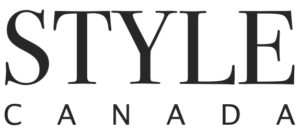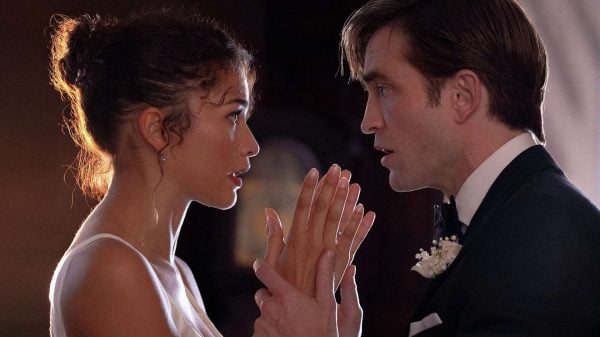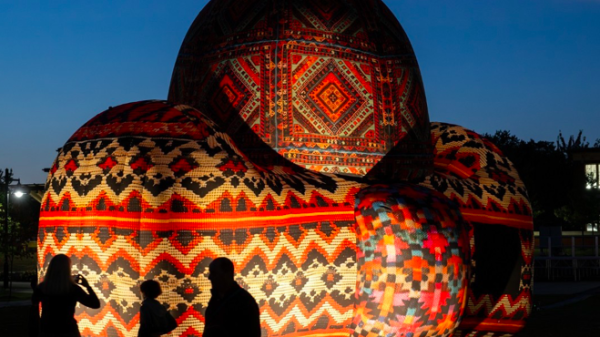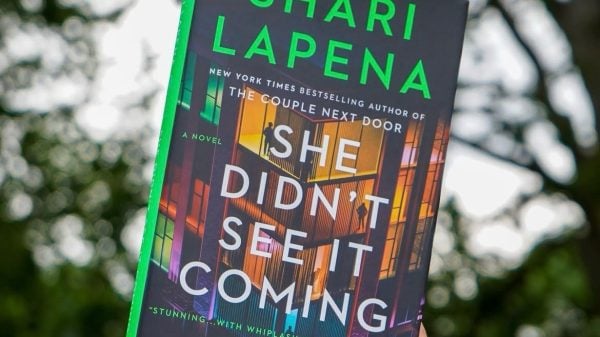As a group of women working towards common goals for STYLE Canada‘s brand and business, we understand the value of peer support in the workplace. So, after our last Supper Club at Soho House, we decided to bring like-minded women in business together and feature them in an ongoing series: #LeadingLadies. Here’s hoping that we’ll see you at our next Supper Club. Keep your eyes peeled on our events page for more details.

Photo: Vanessa Vakharia
Vanessa Vakharia – Feminist, Math Guru, podcast host, and indie rockstar
City: Toronto
Industries: Education, music
SC: What led you to pursue your career?
VV: Well, it all started when I failed grade 11 math… twice! For most of my teenage life, I remember always thinking that I was more of an ‘artsy person’ and not really a ‘math person’, and that the two could never possibly co-exist. That same sentiment was reinforced by my friends, teachers, and society as a whole. It wasn’t until I switched schools and got this amazing math teacher who told me there was no such thing as a math person that I realized that I – and anyone – could totally do math. Once I discovered that I was not only capable of doing math but that I was good at it (and like it), I was like, I can literally do anything! I figured that if I could do the one thing that I had been told by all of society that I couldn’t do, if I could jump over that hurdle, then I could do anything that I possibly dreamed of.
I started my band, Goodnight, Sunrise and my tutoring studio, The Math Guru, because of that exact feeling. I honestly don’t know if I would have done any of those things had I not met the amazing teacher who made me realize that there was no such thing as a ‘math person’, and no such thing as any ‘type’ of person. We’re all just people who can do anything we dare to dream, and that’s why I became a math educator.
SC: What has your career path looked like?
VV: My career path has been anything but a straight line. I started off forming a band, trying to get famous, and wanting to marry Keanu Reeves at 18-years-old, (I’m actually still trying to do all of this, so I haven’t deviated from that). I ended up getting my Bachelor of Commerce degree, specializing in marketing, then got a graphic design degree, had a few questionable jobs which I won’t get into here (but will divulge that one of them did involve a brief stint working at Hooters), and then finally got my teaching degree in secondary school mathematics.
I taught in the classroom for one month and decided it wasn’t for me, (I’m horrible at disciplining groups of teenagers), so I decided to pursue a masters degree in math education with a focus on feminist studies. This whole time I was tutoring out of my one-bedroom apartment and realizing that while I hated the education system, I absolutely loved showing kids that they were capable of what society had told them they’d never be capable of – which was especially true for young women. I mean, what movies have you seen lately about multi-dimensional female protagonists who are also good at math? If you said Hidden Figures, I challenge you to name another. There was (and still is!) a massive problem, and it turned out that it was my calling to solve it.
We’re all just people who can do anything we dare to dream, and that’s why I became a math educator.
SC: What led you to found The Math Guru? Can you give us a brief description of the studio and what goes on there?
VV: I realized when I started tutoring high school students (mainly girls) that I was the first math teacher or tutor they ever had who let them be themselves during a lesson. Most of the time, these girls saw math as this gross, strict, objective thing. I wanted to show them that math would make them cooler humans because they would start to understand the fundamentals of the universe and feel amazing after overcoming the obstacles that are imposed by mainstream media. I started The Math Guru to show these girls that they could totally love Taylor Swift and get how to do a calculus problem. They’re not diametrically opposed!
This philosophy translated into the creation of my studio, The Math Guru. It’s colourful, it’s bright, it smells like vanilla and incense and yummy tea. We have candles going, sage burning, lattes frothing, and we even have merch. Every tutoring session comes with a pi tea latte that is super cute and delicious. Our tutors are all trained to focus on the student as a whole person, not just as a one-dimensional student doing math. For all of these reasons, The Math Guru is such a different vibe than any other tutoring centre. It’s not about school, it’s about you becoming the best version of yourself. We just happen to help you do that through math. Because what better feeling is there than realizing, oh my God! I can actually do math!

The Math Guru’s signature Pi Tea Latte. | Photo: Vanessa Vakharia
SC: Would you say that a young woman’s learning ability is blocked when they’re growing into their self-confidence and it isn’t as strong?
VV: I think self-consciousness plays into learning when we’re younger because we feel like we can only be one thing. We’re taught through the media and societal messaging that we’re an ‘arts person’ or a ‘science person’, and this is even harder to deal with for girls, who’re often told that it’s not attractive to be smart (though I think this is starting to change). Like, have you ever seen a movie where a cheerleader also loves calculus? I haven’t!
I think another huge factor that comes into play is that we’re obsessed with the concept of ‘genius’. We believe that if you have to try at something, you aren’t good at it and you should just give up. We say that resilience and hard work are important qualities to employers, parents, and teachers, yet when a kid struggles with a math problem, we often just write them off as an ‘artsy person’ who will never be able to do math. That is not a way to foster resilience, nor is it a way to encourage the merits of a strong work ethic.
Genius is also gendered, especially in math. What math geniuses come to your mind? Matt Damon in Good Will Hunting? Who wants to be Matt Damon in that movie? He’s a math genius who can’t find love. Like, ew -nobody wants that. How would encourage a boy to be good at math, much less a girl?
SC: Are there any new teaching trends that are helping girls learn?
VV: I really love the whole failure narrative happening right now. Math is literally all about failure. How else do you think mathematicians came up with their theorems? We like to call it ‘experimenting’, but it’s really just failing 99 times and finally getting it on the hundredth attempt.
There was (and still is!) a massive problem, and it turned out that it was my calling to solve it.
SC: Can you give us a description of Math Therapy and the XAM Study Lounge?
VV: Math Therapy is my podcast that works through adult math traumas, one problem at a time. Season two is dropping in June and I can’t wait for everyone to hear about the inspiring people who’re overcoming their own math traumas and feel like they can do anything because of it. That’s why I started the podcast: to show adults that this fear of math that most of us have is holding us back from doing so many things, but it doesn’t have to. You do math all the time and you just don’t know it.
XAM Study Lounge was Canada’s first-ever pop-up high school study lounge. Think co-working space, but for teens studying for final exams. We had face masks, tea lattes, earplugs, and anything else you possibly needed to get in the zone. It was awesome, but I don’t think we’ll be able to do it this year because of COVID-19.
SC: How would you describe your role in every facet of your business?
VV: Party host meets motivational speaker meets Mindy Kaling.
SC: Can you tell us about how your students and business have been affected by COVID-19?
VV: It’s been hard for a lot of them. Many of them are making the best of the situation and have used this as an opportunity to learn more about science and math with us, but many of them are lacking the structure that they’ve grown accustomed to. What’s a little frustrating is that I’m seeing a few of my students who aren’t self-isolating after their March Break trips and treating school closures as an extended break, choosing to party and hang out with friends. That has been really hard for me to see because it’s just furthering the spread of COVID. I’ve been super active on Instagram about flattening the curve and have been hosting Instagram Live sessions with my tutors to talk about the math behind why social distancing is effective, as well as the science behind how Corona spreads. Some kids just don’t care and it breaks my heart. I think we’re getting there though, and we’re changing minds little by little. I’m hopeful.
In terms of my business, we’ve pivoted to virtual tutoring and it’s actually been a really cool experience. It’s one of those things that’s super overwhelming and scary at first, but sometimes innovation and growth happens because of an obstacle rather than in spite of it. I’m excited to see where all of this goes, though I’m feeling nervous, hopeful, scared, and excited, all at once.
SC: Can you explain ‘the math behind social distancing’?
VV: I have found that the most effective way to convince students to take COVID seriously is to break down the math behind it in an accessible way. I’ve been doing this via social media and in mass media publications, like this piece I wrote for Addicted Magazine. Once kids understand that they can mathematically make a difference and save multiple lives, they’re more likely to make the sacrifices needed to stay home. It’s ironic that we’ve decided that #flattenthecurve is the mantra we’re going to use to convince a math-adverse society to get on board with stopping the spread. You have to remember that most people get anxious when they hear the word ‘exponent’ and don’t feel comfortable reading a graph, so we need to do better and really make the math behind COVID accessible.

Vakharia hanging out in The Math Guru lounge with a warm Pi Tea Latte. | Photo: Vanessa Vakharia
SC: What is the biggest lesson you’ve learned in your career and in running your own business to date?
VV: You only have so much time and so many f*cks to give. So if you want to do something, ask yourself: what time will you be taking away from other things? What f*cks are you giving to something that you ultimately need to take away from something else? As Sarah Knight put it, your ‘giving a f*ck budget’ isn’t finite, so choose where you allocate it wisely.
SC:What obstacles have you overcome to get to where you are today?
VV: So many of the obstacles I face have come from my appearance, which is ridiculous. I’ve been told so many times that I don’t look like a math teacher or act like a math teacher. Like, what does that even mean? That’s why I had to quit teaching within the mainstream school system. Why would I want to conform to a system that doesn’t accept me? I oscillate between an ‘if you can’t beat ‘em, join ‘em’ approach and an ‘if you can’t beat ‘em, start your own thang’ approach. I find that the combination of the two is the perfect jumping off point for most of my ideas.
I realized when I started tutoring high school students (mainly girls) that I was the first math teacher or tutor they ever had who let them be themselves during a lesson.
SC: What’s one thing you would’ve done differently?
VV: As Édith Piaf once said: ‘Je ne regrette rien’.
SC: What’s your biggest strength?
VV: My willingness to fail. I will legit try anything and get kind of excited if I fail horribly. Remember, I’m in an indie rock band, so it’s basically our job to get rejected by someone in the industry at least once a day. I make it a personal goal of mine to reach for goals that I will most likely not achieve. You know, to build that failure muscle!
SC: What’s your biggest challenge/weakness?
VV: My to-do list. Seriously. I have lists that tell me to look at other lists and those lists direct me to other lists. Help!
SC: How would your friends and colleagues describe you?
VV: Bubbly, warm, Lady Gaga 2.0, energetic, crazy (but in a good way), relentless, super ‘extra’, and way too obsessed with astrology. And Keanu Reeves.
SC: If you have one goal for The Math Guru/Math Therapy/XAM Study Lounge and one goal for yourself, what are they?
VV: To make sure everyone realizes that they’re a math person. That’s my goal for everything I do.
SC: What are some personal career milestones you’re particularly proud of?
VV: Finishing my masters thesis which I managed to get away with calling Imagining a World Where Paris Hilton Loves Math, winning the 2019 Vision Builder Award, growing The Math Guru from a solo operation to a studio that employs more than 40 tutors, and opening for Bon Jovi in front of 10,000 people at Toronto’s Scotiabank Arena.
SC: What advice would you give your 18-year-old self?
VV: Stop giving a sh*t about what other people think. Trust me, people are way too busy thinking about what you think about them, to give a sh*t about you!










You must be logged in to post a comment Login